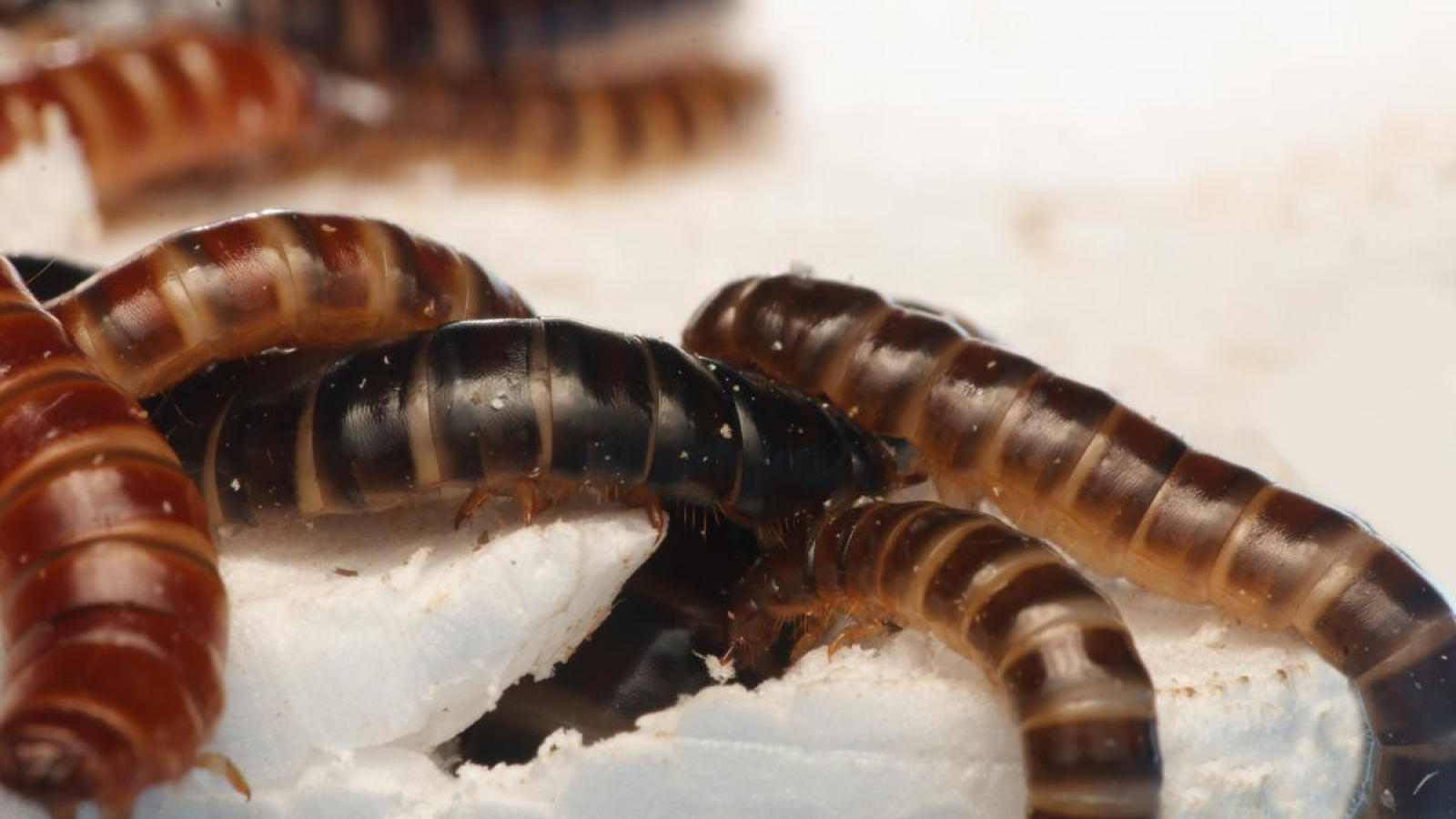
Scientists may have discovered an unlikely ally in the fight against plastic waste: the lesser mealworm. Native to Africa but now widespread across the planet, a beetle larvae from the Alphitobius genus can consume and degrade plastic, the researchers found.
The finding could be particularly useful in combating plastic pollution in Africa, the researchers noted. The continent is the second-most plastic-polluted continent in the world, despite producing only 5% of the world's plastic pollution, according to the World Health Organization.
In the study, published Sept. 12 in the journal Scientific Reports, researchers found that the lesser mealworms can digest polystyrene, a type of plastic commonly found in Styrofoam food containers and packaging. The team isn't sure of the species yet, and think it may be a new subspecies that needs to be identified.
This finding follows similar results with other mealworm species worldwide. "However, this is the first time that the lesser mealworms, which are native to Africa, have been documented to have this capacity," study author Fathiya Khamis, a scientist at the International Centre of Insect Physiology and Ecology (ICIPE) in Kenya, said in a statement.
The researchers found that the larvae could consume close to 50% of the polystyrene they were fed, with their efficiency increasing if the plastic feed was mixed with bran or grain husks.
The bacteria living in the mealworms' gut help them break down the complex polymers in plastic. Microbial communities, including those in the genera Kluyvera, Lactococcus and Klebsiella, play a crucial role in digesting the polystyrene, turning it into simpler compounds that the mealworm can process without harm.
Related: Plastic-eating fungi could help take a bite out of Earth's rampant pollution crisis, study suggests
These bacteria produce enzymes capable of digesting the plastic, and so increasing the number of these bacteria or enzymes in mealworms could increase their plastic-processing efficiency, while not harming the insects themselves.
In the future, scientists could identify the specific bacterial strains and enzymes involved in breaking down polystyrene and use them in recycling plastic waste, the researchers said. The research may lay the groundwork for a future pathway to turn plastic into high-value insect protein for animal feeds.
"We will also explore the mechanisms of the bacteria in the lesser mealworm in the degradation of plastic. We want to understand if the bacteria are inherent in the mealworms, or if they are a defence strategy acquired after feeding on plastic," study co-author Evalyne Ndotono, a scientist who conducted the research as part of her master's studies at ICIPE, said in the statement.







